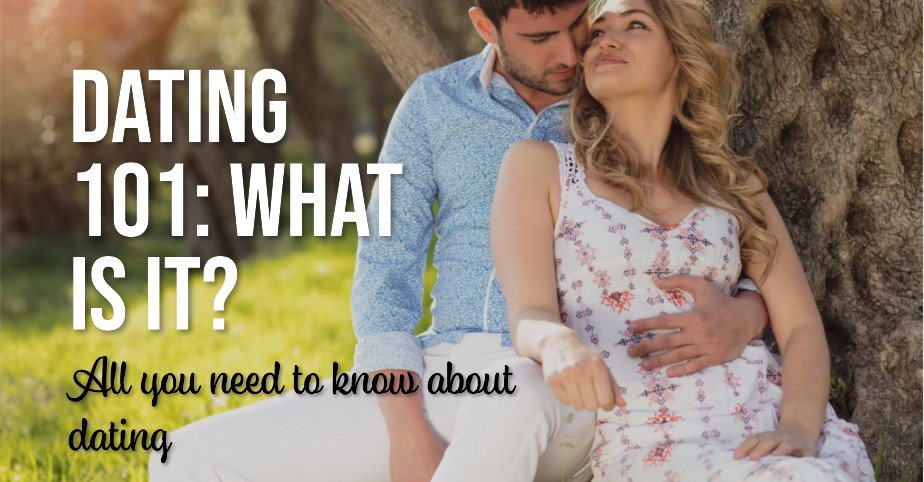Is a relationship called dating?
Are you in the dating realm, or have you already entered the realm of a committed relationship? The journey from dating to a relationship isn’t always a clear path, and understanding where you stand with your partner is crucial for your peace of mind. In this blog post, we’ll unravel the distinctions between dating and relationships, providing clarity in a world filled with generational dating trends and ever-evolving dating terminology.

The Dating Dilemma
Dating can be a bit of a puzzle. It’s a phase where deciphering your status can often feel like solving a riddle. From evolving dating norms to the ever-present dating jargon, it’s easy to get lost. But not knowing where you stand can lead to anxiety. This post is your guide to understanding the dating vs. relationship conundrum.
Dating vs. Relationship
| Aspect | Dating | Relationship |
|---|---|---|
| Definition | Getting to know someone with potential | A committed, monogamous union |
| for a future romantic connection. | ||
| Emotional Connection | Growing connection, but not necessarily | Strong emotional bond, with clear exclusivity |
| emotionally exclusive. | ||
| Physical Intimacy | May include physical intimacy, but not | Physical intimacy is common and expected. |
| exclusive. | ||
| Communication | Limited communication and sharing. | Open and honest communication about past |
| and present life details. | ||
| Expectations | Lower expectations, casual dating. | Greater expectations, long-term commitment. |
| Priorities | Personal preferences and schedules. | Partner becomes a top priority. |
| Meeting Friends/Family | Not typical in the early stages. | The introduction to inner circle is significant. |
| Commitment | Limited commitment, often no long-term plans. | Strong commitment, willingness to make |
| sacrifices for the future. | ||
| Relationship Progress | Progress may be slow and uncertain. | Progression through various stages (e.g., |
| attraction, crisis, commitment). |
What Does Dating Mean?
At its core, dating is the initial stage of getting to know someone. It could be one-on-one or in a group, with the possibility of a future romantic connection. However, dating’s definition varies from person to person. It’s about building familiarity, having fun, and cherishing time together. While physical intimacy might be part of dating, it doesn’t necessarily equate to a committed relationship. Clear communication is essential, especially before venturing into physical intimacy.
When It’s a Relationship
A relationship takes shape when there’s mutual agreement. It signifies exclusivity, and the casual dating phase fades away. The transition from merely dating to calling each other boyfriend and girlfriend marks this shift. It can lead to a lifelong partnership, including a happy marriage. A healthy relationship often means monogamy.
Identifiers: Dating vs. Relationship
Let’s delve into the distinguishing factors that demystify the blurry lines between dating and a relationship.
1. Comfort in Everyday Chores
In a budding relationship, you’ll notice that plans don’t always revolve around grand events. Comfortable coexistence becomes the norm. Whether you’re indulging in personal hobbies side by side or just lazing together, it’s a sign of lowering your emotional walls.
2. Exclusive Focus
When you’re genuinely interested in someone, other potential romantic interests naturally fade into the background. If you’re no longer compelled to start new conversations or seek new connections on dating apps, it’s a sign you’re leaning towards desiring a committed relationship.
3. Being Your True Self
In a relationship, you’re not afraid to be your authentic self. You can be quirky, messy, or have guilty pleasures like binge-watching TV shows together. Your raw self shines when you’re completely comfortable around your partner.
4. Open Communication
In a committed relationship, open and honest communication is the norm. You share your past and present life details freely, creating a deeper bond. In contrast, during dating, communication tends to be more limited.
5. Expectations
Expectations vary significantly between dating and relationships. If you’re comfortable asking your partner for favors, trust their support, and don’t have grand expectations, it’s likely you’re in relationship territory. Casual dating often involves fewer expectations.
6. Priorities
Relationships change your priorities. You move from planning around your timetable to considering each other’s schedules and comfort. Your partner becomes a top priority, akin to family.
7. Meeting Friends and Family
Introducing your partner to friends and family is a significant milestone in a relationship. It signifies your commitment to deepening the bond and shows your partner that you’re serious about them.
8. Commitment
Commitment is the hallmark that distinguishes casual dating from a relationship. Partners in a committed relationship envision a future together and are willing to make sacrifices for it. In dating, commitment may extend to activities like watching a movie together but doesn’t necessarily involve long-term plans.
The Stages of a Relationship
Understanding the progression of a relationship is key to navigating the complexities of dating and relationships. Here are the stages you might encounter:
1. Attraction and Romance
Excitement and euphoria characterize this initial stage. Your partner is always on your mind, and you’re falling in love. It’s a time of bliss, with love songs and romantic movies resonating deeply.
2. The Crisis Stage
As the honeymoon phase wanes, you move into the crisis stage. Dopamine dwindles, and reality sets in. It’s a challenging phase where you learn more about each other, sometimes revealing quirks that lead to disagreements. It’s a test of your bond.
3. The Working Stage
Assuming you’ve conquered the crisis stage, you enter the working stage. It’s characterized by patience, harmony, and routine development. You find comfort in the mundane and can envision a future together.
4. The Commitment Stage
This stage is all about confessing your love and choosing to stay together despite challenges. You embrace each other’s goals and dreams, with an eye on a long-term commitment. It often leads to significant life steps like moving in together or marriage.
5. The Real Love Stage
In the final stage, you become a team, a family, and face life’s challenges together. Your love can conquer any obstacle, and past mistakes have made you wiser. It’s the stage where you realize that everything you’ve been through was worth it.
Key Takeaways
- The lines between dating and relationships can be blurry due to evolving dating terminology and generational trends.
- Dating is primarily about getting to know someone, with the potential for a future relationship.
- A relationship is a committed, exclusive union.
- Understanding these differences offers clarity about your current status and long-term desires.
So, are you dating or in a relationship? When everyday routines become shared moments, commitments are made, priorities shift, and you introduce your partner to your inner circle, it’s a sign you’ve transitioned from dating to a full-fledged relationship. Embrace the journey, as both dating and relationships help you discover yourself as a lover and partner.

In summary, understanding where you stand with your partner is crucial for a healthy and fulfilling love life. Whether you’re navigating the dating landscape or enjoying the perks of a committed relationship, each phase has its own unique charm and significance. Embrace the journey, cherish the moments, and let love lead the way.
FREQUENTLY ASKED QUESTIONS
FAQ 1: What is the difference between dating and being in a relationship?
Answer: Dating involves getting to know someone, often in a casual and non-exclusive manner, while a relationship signifies a committed union where exclusivity and mutual understanding are established. In a relationship, you refer to each other as boyfriend and girlfriend, and it can lead to a lifelong partnership.
FAQ 2: How can I tell if I’ve moved from dating to a committed relationship?
Answer: Several signs indicate you’ve transitioned from dating to a relationship, such as becoming comfortable with everyday chores together, losing interest in dating others, being your true self around your partner, and introducing them to your friends and family. A promise of commitment is another significant indicator.
FAQ 3: Are there stages in a relationship’s progression?
Answer: Yes, there are stages in a relationship’s progression. These stages include the Attraction and Romance stage marked by excitement, the Crisis Stage where you face challenges, the Working Stage where you build a routine, the Commitment Stage where you confess love and consider long-term commitments, and the Real Love Stage where you become a team and face life together.
FAQ 4: How do expectations differ between dating and relationships?
Answer: Expectations vary between dating and relationships. In a relationship, you tend to have more expectations from your partner, such as being there for each other in times of need. In dating, expectations are generally lower as it’s often more casual and less committed.
FAQ 5: Why is it important to understand the difference between dating and a relationship?
Answer: Understanding the difference is crucial for clarity and peace of mind. It helps you know where you stand with your partner and what to expect in the long run. It also aids in effective communication and ensures that both individuals are on the same page regarding the nature of their connection.
SOURCES:
12 Types of Dating and How They Work
Dating Vs Relationship: 7 Ways They Are Different
12 Differences Between Dating And Being In A Relationship
How to Use the Three-Month Dating Rule to Test Out New Partners?





